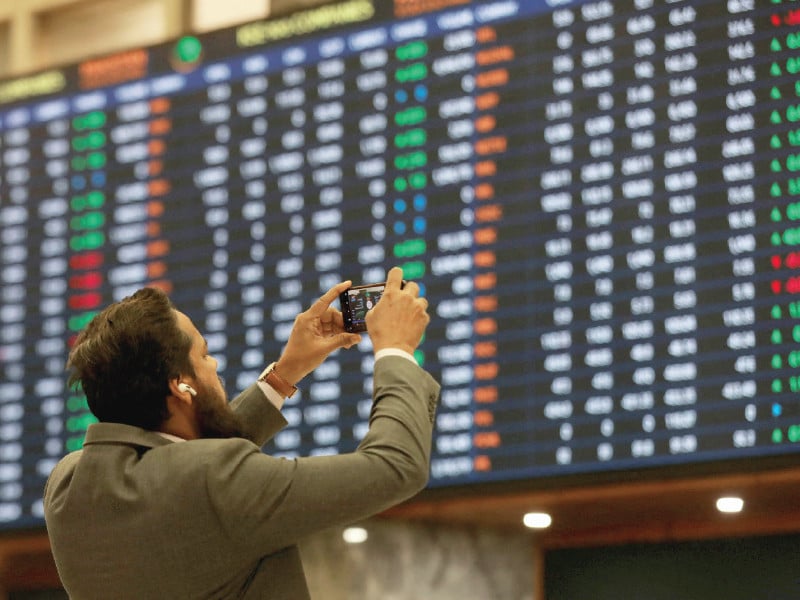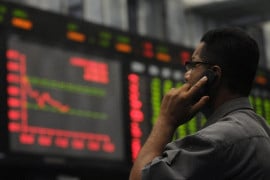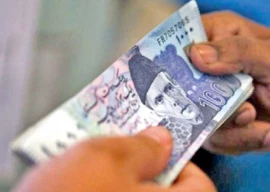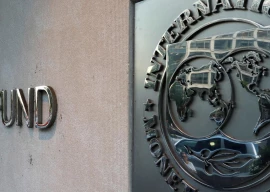
Pakistan Stock Exchange (PSX), after shooting up to record highs, experienced some correction during the outgoing week as investors resorted to profit-booking, primarily due to the State Bank of Pakistan (SBP)’s decision to leave its policy rate on hold for the next six weeks.
Investors, analysts, businessmen and market players had been expecting for some time that the central bank would slash the policy rate to give a fresh fillip to the economy, but the SBP’s announcement dashed their hopes.
During the week, Pakistan’s trade deficit for April widened to a 15-month high on the back of a significant jump in imports, which dampened investor interest and pulled the stock market down.
Among positives for the week, the Consumer Price Index (CPI)-based inflation slowed to a nearly two-year low at 17.3% while the country’s foreign currency reserves remained stable at $8 billion.
In a major development, the International Monetary Fund (IMF) released the last loan tranche of $1.1 billion under a $3 billion standby arrangement.
Increasing prospects of massive Saudi investment in Pakistan gave a big boost to the market at the end of the week.
Day-by-day movement of the market showed that at the commencement of the week on Monday, the PSX faced intense selling pressure as the KSE-100 index slumped by around 1,050 points amid uncertainty surrounding the SBP’s policy rate announcement before new loan talks with the IMF.
Next day too, the bourse suffered significant losses as the SBP maintained a tight monetary policy amid inflation concerns, geopolitical risks and pending fiscal measures.
On Wednesday, the stock market remained closed for the Labour Day holiday. It faced an extended selling spree in a volatile session on Thursday where institutional profit-taking, coupled with a slump in global crude prices and lower exports from Pakistan, dragged the KSE-100 below the 71,000-point threshold.
After coming under pressure for three consecutive sessions, a highly bullish momentum swept through the PSX on Friday, with the KSE-100 skyrocketing by over 1,200 points and reaching close to the 72,000 mark.
Overall, the benchmark KSE-100 index lost 841 points, or 1.16% week-on-week (WoW), and closed at 71,902.09.
JS Global analyst Shagufta Irshad, in her report, wrote that the KSE-100 index took a breather with a 1.2% WoW correction in the outgoing week, after touching a new high last week.
Average traded volumes dipped by 21% while average traded value in dollar terms dropped by 8%.
The correction was overdue as the central bank’s monetary policy meeting decided to keep the policy rate unchanged at 22% for the sixth time, she said.
Inflation for April 2024 receded to 17.3%, a 23-month low, while the SBP’s foreign exchange reserves remained at $8 billion.
The IMF executive board approved the final $1.1 billion loan tranche, which was expected to take reserves to $9 billion in the next weekly update.
The April 2024 trade deficit stood at a 15-month high at $2.4 billion, reflecting a 10% year-on-year (YoY) increase in exports compared to a 58% jump in imports.
Among other news, the Federal Board of Revenue (FBR) collected less-than-targeted revenue during April, which took 10MFY24 shortfall to Rs48 billion.
Additionally, the government slashed petrol price by Rs5.4 per litre and diesel rate by Rs8.4 per litre. In the currency market, the rupee reached a 15-month high against yen, which encouraged auto assemblers to announce price cuts to boost sales, the JS analyst added. Arif Habib Limited (AHL), in its report, said that the KSE-100 index endured persistent pressure throughout the week as the market anticipated a rate cut, but it was left unchanged at 22%.
On the economic front, trade deficit shrank by 17% YoY for 10MFY24, settling at $19.5 billion. During 3QFY24, the economy recorded its first negative primary balance for the current fiscal year, amounting to Rs197 billion.
Sector-wise, negative contributors to the index were technology and communication (276 points), fertiliser (256 points), commercial banks (201 points), pharmaceuticals (50 points) and chemicals (43 points).
Foreign investors bought shares valuing at $8 million during the week under review compared to net buying of $3 million last week.
Published in The Express Tribune, May 5th, 2024.
Like Business on Facebook, follow @TribuneBiz on Twitter to stay informed and join in the conversation.




































COMMENTS
Comments are moderated and generally will be posted if they are on-topic and not abusive.
For more information, please see our Comments FAQ